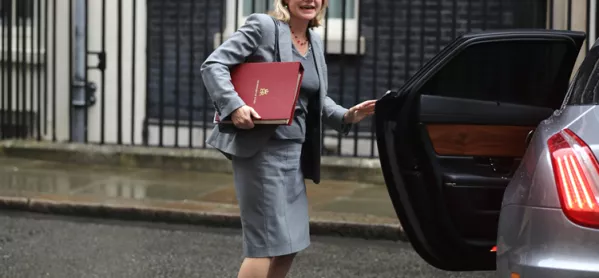Education secretary Justine Greening this afternoon launched the government’s consultation on its controversial new proposals to expand selection across the country.
It includes new details of the heavy sanctions that the government plans to place on any selective school that does not go far enough in meeting requirements designed to boost social mobility
Here are the major points in the consultation document:
- Conditions
Any new or expanding selective school would have to meet certain conditions. These include taking a proportion of pupils from lower income households; establishing a new non-selective secondary school; setting up a primary feeder in an area with a higher density of lower income households; or partnering with a nearby comprehensive or multi-academy trust (MAT).
- Sanctions
Where selective schools do not meet expectations of providing “good or outstanding non-selective education” alongside their own provision, the government will hit them with sanctions, namely: removing access to any additional funding for new pupils or programmes; removing the right to select by ability (either temporarily or permanently); or barring selective schools from expanding further.
- Selection within trusts
The government will encourage MATs to select within their own trusts, by setting up a “single centre” for their most able students. The centre could be “virtual or have a physical location” and would provide their high achieving students with a more challenging curriculum.
- Outreach work
Selective schools will have to take part in a range of outreach work to encourage local primary schools to “raise aspirations, improve educational practice, and promote wider access”. Grammar schools will also be asked to work with primary schools to identify individual pupils who might benefit most from “targeted activity”.
- Change in legislation
In a bid to improve fairer access to grammars, the government is proposing creating legislation that will require selective schools to prioritise children in receipt of the pupil premium and those from “lower income households”.
- New disadvantage funding
The government is asking for advice on how it can “identify the group of people who are ‘just about managing’” and how it can measure the attainment and progress of children from these families in the school system. Prime minister Theresa May last week said the focus on free school meals children “skewed” policy. The government is now looking at how best to identify those pupils from families earning just above the £16,190 FSM threshold.
- New national funding formula
The green paper states the government is still committed to a new national funding formula. It states that any new formula will “reward those schools that support schools with a higher proportion of lower attaining pupils and those from less wealthy households”.
Want to keep up with the latest education news and opinion? Follow TES on Twitter and like TES on Facebook




